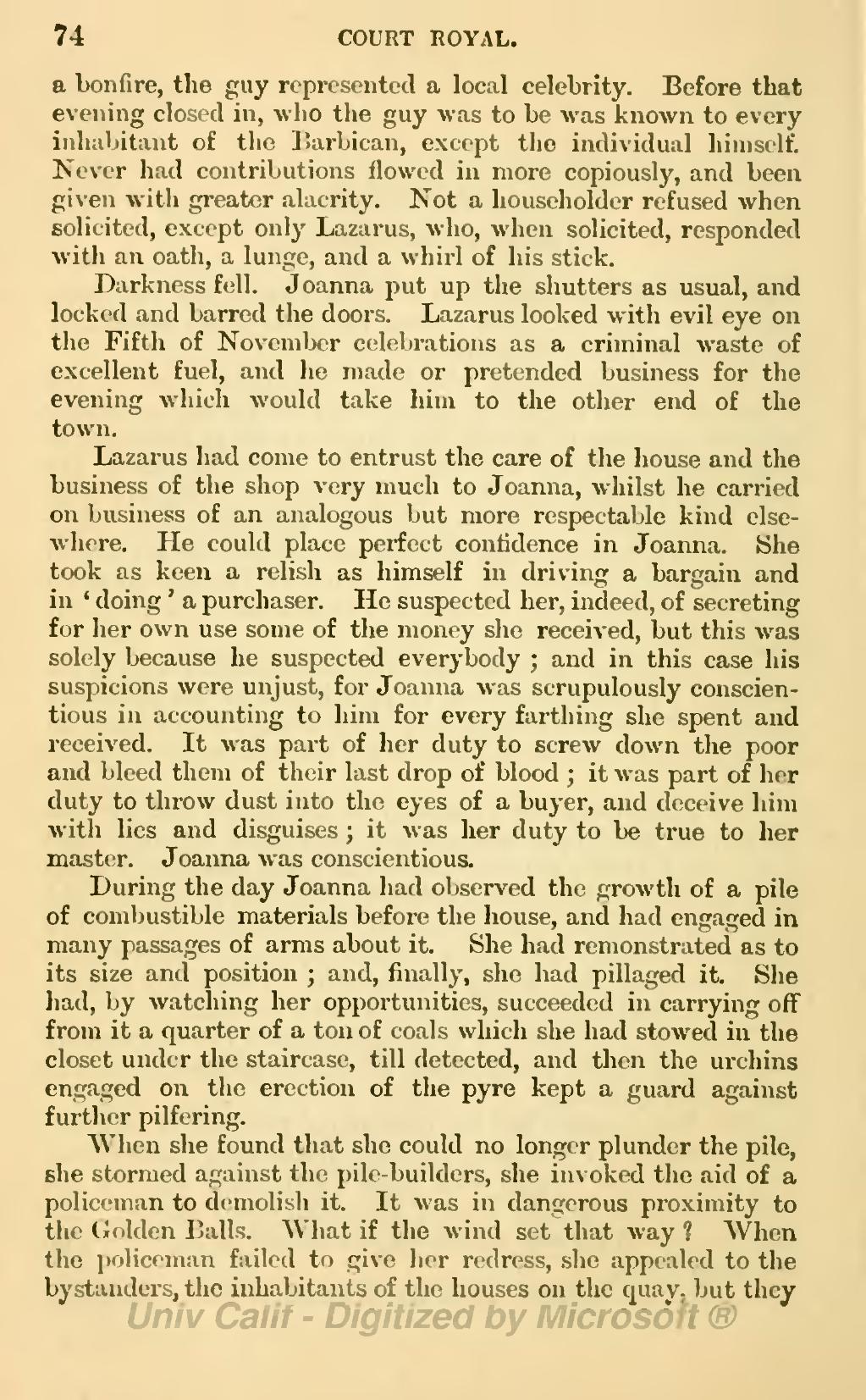a bonfire, the guy represented a local celebrity. Before that evening closed in, who the guy was to be was known to every inhabitant of the Barbican, except the individual himself. Never had contributions flowed in more copiously, and been given with greater alacrity. Not a householder refused when solicited, except only Lazarus, who, when solicited, responded with an oath, a lunge, and a whirl of his stick.
Darkness fell. Joanna put up the shutters as usual, and locked and barred the doors. Lazarus looked with evil eye on the Fifth of November celebrations as a criminal waste of excellent fuel, and he made or pretended business for the evening which would take him to the other end of the town.
Lazarus had come to entrust the care of the house and the business of the shop very much to Joanna, whilst he carried on business of an analogous but more respectable kind elsewhere. He could place perfect confidence in Joanna. She took as keen a relish as himself in driving a bargain and in ‘doing’ a purchaser. He suspected her, indeed, of secreting for her own use some of the money she received, but this was solely because he suspected everybody; and in this case his suspicions were unjust, for Joanna was scrupulously conscientious in accounting to him for every farthing she spent and received. It was part of her duty to screw down the poor and bleed them of their last drop of blood; it was part of her duty to throw dust into the eyes of a buyer, and deceive him with lies and disguises; it was her duty to be true to her master. Joanna was conscientious.
During the day Joanna had observed the growth of a pile of combustible materials before the house, and had engaged in many passages of arms about it. She had remonstrated as to its size and position; and, finally, she had pillaged it. She had, by watching her opportunities, succeeded in carrying off from it a quarter of a ton of coals which she had stowed in the closet under the staircase, till detected, and then the urchins engaged on the erection of the pyre kept a guard against further pilfering.
When she found that she could no longer plunder the pile, she stormed against the pile-builders, she invoked the aid of a policeman to demolish it. It was in dangerous proximity to the Golden Balls. What if the wind set that way? When the policeman failed to give her redress, she appealed to the bystanders, the inhabitants of the houses on the quay, but they
